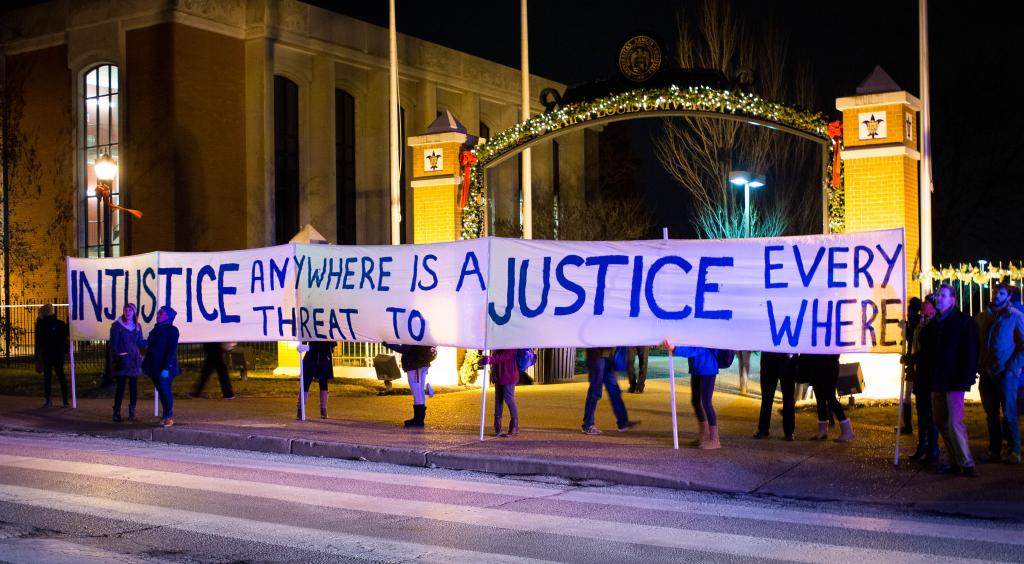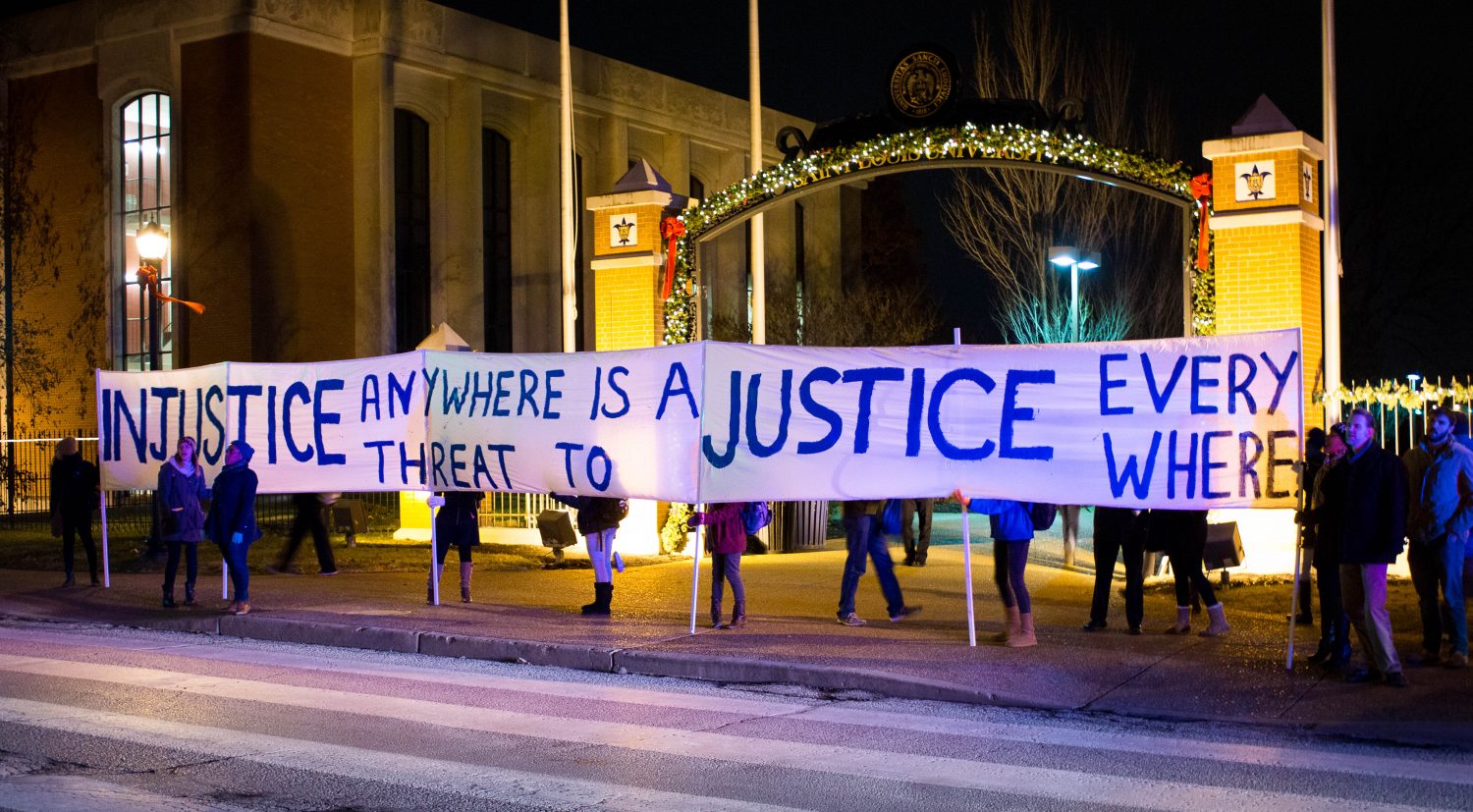
Javier Muro de Nadal / Staff Photographer
It seemed St. Louis held a collective breath the night of Monday, Nov. 28, as it awaited the announcement on the decision to indict police officer Darren Wilson for the Aug. 9 shooting and killing of Michael Brown. The city had waited 109 days for this moment, and had prepared itself for the worst. Governor Jay Nixon had called in the National Guard and declared Missouri in a state of emergency; Ferguson, along with other neighborhoods, began shutting down businesses in the days leading up to the announcement.
On Monday, Nov. 28, at 8:00 that evening, the wait was over. Citizens from across the country prepared themselves for whatever would happen next. Millions of eyes glued to television screens as prosecuting attorney for the case, Bob McCulloch, approached the podium and finally released a lengthy statement explaining the details that were considered throughout the duration of the grand jury’s decision process. This decision, extremely controversial from the beginning, ultimately led to a non-indictment conclusion.
What happened next sent a shock wave throughout the city and the nation. Protesters waiting outside the Ferguson Police Department, hopeful for a decision to indict Wilson, were left disappointed and took to the streets of Ferguson to demonstrate their frustrations. Police department officers from throughout the city donning riot gear faced an angry group of protesters who were desperate to make a statement against the grand jury’s decision.
Within minutes, the nation watched as protesters burned police cars, looted local businesses and set fire to buildings along Florissant Ave. What appeared on televisions across the country gave impressions of violent protesters, willing to disobey the law to ensure their message was heard from one corner of the nation to the other.
While fires blazed and arrests were rampant in Ferguson, protesters throughout the rest of St. Louis used other tactics to protest against the non-indictment decision.
Mere minutes away from SLU’s campus, protesters accumulated along South Grand. Considered peaceful in comparison to those gathered in Ferguson, those on South Grand walked the streets quietly holding signs calling for justice for the death of the 18-year-old Brown. Police were rampant; their cars whizzed up and down the street, following the protesters as they walked.
Church officials and volunteers lined the sidewalks, passing out hand warmers and offering coffee and hot chocolate. Many offered refuge inside their buildings ensuring safety from threatening circumstances. Some safe places also invited legal officials to discuss citizens’ rights and what to do in certain situations. While the media broadcasted images of destruction following the announcement, scenes of compassion and camaraderie were visible to those who were willing to see.
While chaos spread in Ferguson, South Grand protesters also caused commotion. They marched northward and proceeded to lie down on Interstate 44, halting traffic until policemen intervened. Those who refused to leave were tear gassed.
Senior Roya Massoudnia witnessed the protests both before and after the use of tear gas.
Massoudnia said: “the most apparent thing was mistrust amongst the police of the protestors and vice versa. The community itself had come together in support of itself and many churches were open as well as many locals were waving and holding signs of support. I was in a safe space during the time that the tear gas was thrown at people and all I can say is that it was mortifying to see herds of people whose whole bodies were aching and eyes swelling like that”.
Several other SLU students partook in the protests. Some, like Massoudnia, witnessed the tear gassing of those raising their voices against the non-indictment announcement. Others suffered the tear gas themselves.
Protests continue to keep the city on edge. The Galleria closed due to protesters staging a “die in” throughout the building on Black Friday, and many still take to the streets each night in the hope that something more can be done to revert the decision and bring Wilson to trial.










